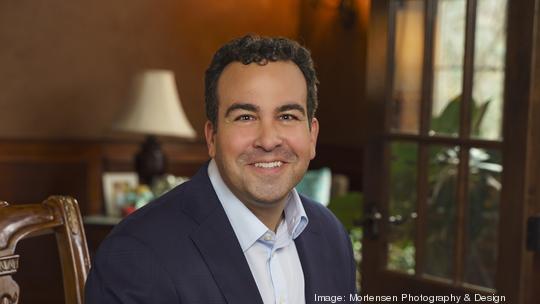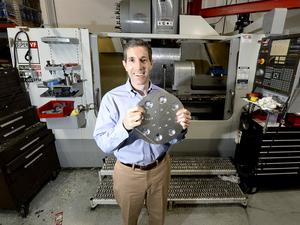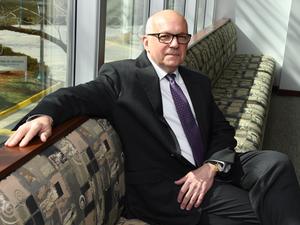
Covid-19 forever changed telemedicine — and business for Reston’s SOC Telemed Inc.
The local company, which went public via a blank-check merger in November and scooped up another company in March, is now laying groundwork for more growth in the acute-care telemedicine space. That includes bringing more services to its hospital customers, further beefing up its Greater Washington headcount, moving to a larger space and keeping an eye out for other potential M&A targets.
“It’s not just a small tweak; it’s really, truly revolutionizing how you think about health care, because having access to specialists drives tremendously best outcomes,” SOC Telemed CEO John Kalix said of the pandemic's huge impact on telemedicine adoption. “We want to be the tip of the spear on what helps telemedicine just become medicine.”
Laying the groundwork
SOC Telemed (NASDAQ: TLMD) is also actively working to integrate into the company Access Physicians, the Dallas company it bought in March for $94 million in cash and another $100 million in stock. SOC acquired the firm because, simply put, it “made a ton of natural sense for us,” Kalix said.
For the Reston provider, which has its own specialists and also provides its Telemed IQ platform to hospitals, Access expanded the company’s footprint to 47 states and brought several additional specialties to its menu.
Many suburban and rural facilities never consider that they could get access to specialty areas such as infectious disease or maternal-fetal medicine, he added. In those cases, a patient suffering from a drug-resistant infection or a high-risk mother in early labor would need to be transferred to other sites with specialists capable of managing their conditions.
But hospitals don’t want to lose those patients, Kalix said. “That’s lost revenue, it’s lost visibility for that patient care, and it has a number of other financial and care implications.” Access' business "provides us that canvas opportunity to really talk to hospitals about their broader telemedicine strategy, or any specialty where they’re having a shortage, or simply had never even considered having a specialist in their backyard,” Kalix added.
SOC is beginning to see post-Covid demand in acute care. Hospitals had to get through the coronavirus crisis before they looked at their next strategies — which they’re now starting to do, Kalix said.
To that end, SOC had a strong first quarter with $8.5 million in new annual recurring revenue booked — 80% of the company’s bookings for all of 2020.
“We’ve gone from talking about one specialty at one hospital to talking at a system level” about how SOC can fill holes in different specialty areas or even to help with peak demand, Kalix said. “That’s what telemedicine naturally brings to the equation.”
Continuing that growth
With Access Physicians, SOC counts more than 750 specialists in its network and serves 1,000 facilities including more than 700 hospitals in 47 states. That’s also after SOC doubled the size of its commercial team twice after going public. As the business continues growing, so will its headcount.
“Finding the right people and the right talent is job No. 1 for us,” Kalix said, adding that SOC will look to add about 85 nonclinical individuals to its 347-person team by year’s end.
SOC plans to maintain the Access Physicians office in Dallas and its 19,000-square-foot Reston footprint. The company also plans to start looking for a larger D.C.-area office space, though Kalix declined to get into specifics at this point.
SOC is staying open to other M&A targets, specifically those that share the same commitment to patients, but it’s not planning to venture beyond acute care.
“A big part of strategy is knowing what you’re going to do and what you’re not going to do,” Kalix said, “and we’re really committed to focusing on this acute care telemedicine space with 100% of our capital, 100% of our focus.”
That’s how SOC plans to change the way hospitals deliver care to their patients. “Our goal is to become part of a care team where the workflow is just so normal, it’s just how you practice medicine,” Kalix said.




